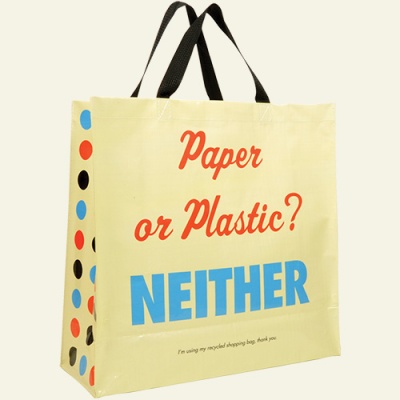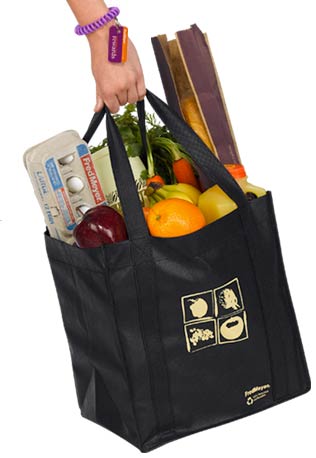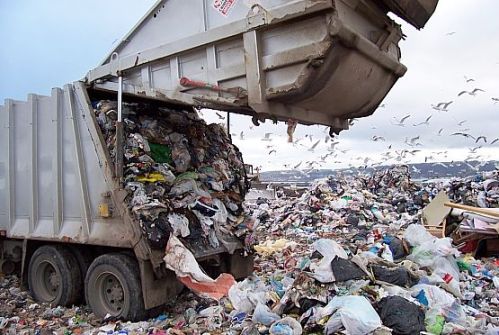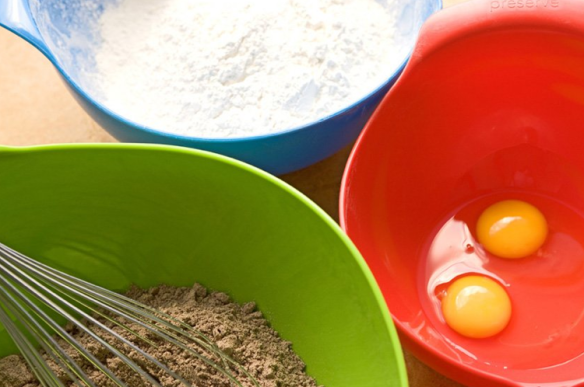Although it’s possible to recycle disposable grocery bags, it’s still a major drain on our environmental resources, and isn’t really worth the trouble. A reusable bag will last forever, and is 95% less likely than a disposable bag to bust open just because you tried to bring home 2 bottles of wine. Still need convincing? Read on to discover why your answer to “paper or plastic?” should be “neither.”

- More than 1 million plastic bags are discarded per minute
- Plastic bags contaminate food and water
- When an animal ingests a plastic bag, these toxic chemicals also enter our own food chain. Yummy!
- Retailers spend approximately $4 billion annually on providing disposable bags– money that could instead go toward improving employee wages, or spiffing up that awful public bathroom
- Plastic bags are so invasive and so darn indestructible, they’ve even become a major litter issue in Antarctica
- Plastic bags are the number one source of ocean pollution
- The manufacturing of paper bags wastes tons of water, too, rendering it completely unsuitable for human or animal use
- The sediment from paper bags causes toxicity in fish and other marine wildlife– and, as you probably know, plastic bags have a horrible reputation for strangling and suffocating all kinds of critters the world over
- A single reusable bag has the capability to replace 1,000 disposable grocery bags in its lifetime

If you carry a purse and are only purchasing one or two small items, consider putting your items in there instead of getting a disposable bag. To make sure you’ll actually remember the reusable bags you put so much earth-friendly effort into retrieving, keep them stashed in your car, or even in an office drawer. If you need something hardier than a bag for your shopping spree, try using a plastic crate!
Stop by The Greener Good to check out the reusable bags we have in store. Our extended holiday hours have begun, meaning that we’re open until 6 PM Tuesday through Saturday!




